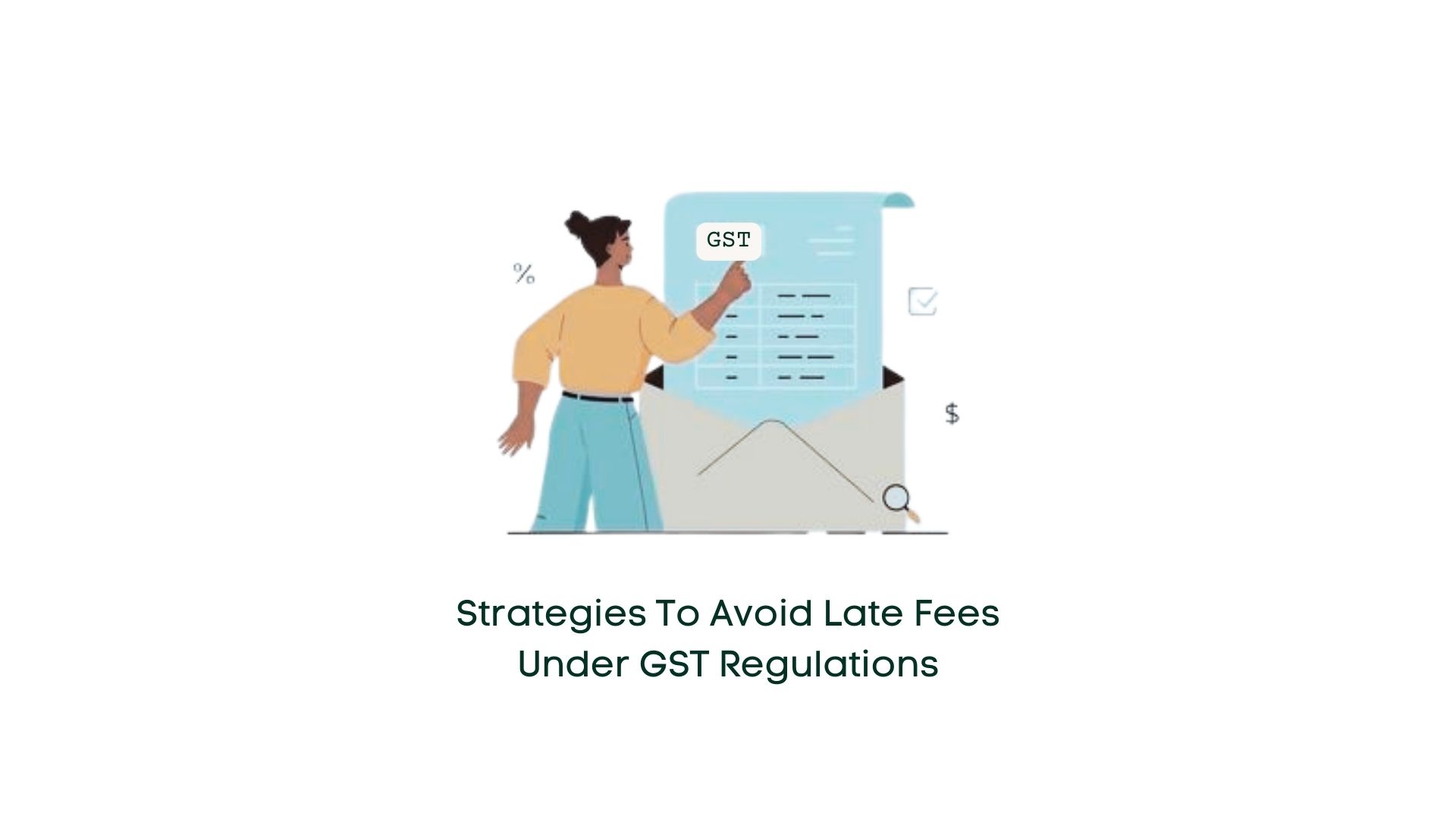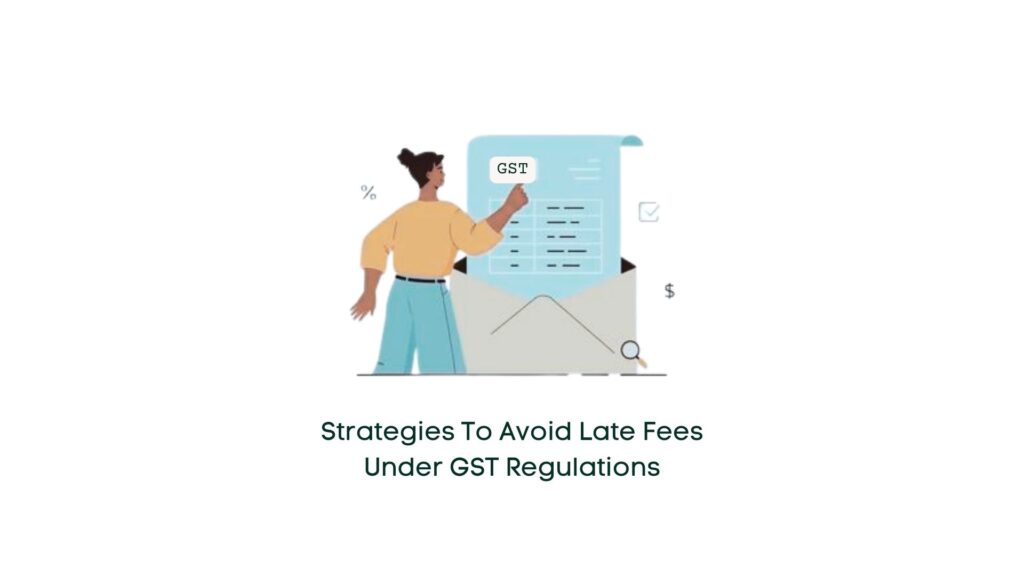
29 Feb Strategies to Avoid Late Fees under GST Regulations

Late fees are a common concern for registered entities under the GST regime. Failure to file GST returns promptly can result in financial penalties under Section 47 (2) of the CGST Act, 2017. The quantum of late fees varies depending on factors such as the type of return, duration of delay, and the due date for filing. Presently, late fees are primarily levied on returns such as GSTR-3B, GSTR-4, GSTR-5, GSTR-5A, GSTR-6, GSTR-8, GSTR-7, and GSTR-9. It’s noteworthy that late fees for delayed GSTR-1 filings may not be reflected immediately but could be enforced during assessments or through official notices.
Understanding the Financial Implications of Late Fees under GST:
Late Fee Rates as per Current GST Regulations:
- For GSTR9/10:
- CGST: Rs. 100 per day of delay
- SGST: Rs. 100 per day of delay
- IGST: Rs. 200 per day of delay (Maximum late fee capped at Rs. 5,000 per return under each Act)
- For Returns Other than GSTR9/10:
- CGST: Rs. 50 per day of delay
- SGST: Rs. 50 per day of delay
- IGST: Rs. 100 per day of delay (Maximum late fee capped at Rs. 10,000 per return under each Act)
- For Nil Returns Other than GSTR9/10:
- CGST: Rs. 10 per day of delay
- SGST: Rs. 10 per day of delay
- IGST: Rs. 20 per day of delay (Maximum late fee capped at Rs. 10,000 per return under each Act)
Scheme for Late Fee Reduction under GST:
To ease the burden on taxpayers, the government has introduced a scheme to limit the maximum late fee for GSTR-3B returns at Rs. 500. This cap applies to returns filed for the tax period from July 2017 to July 2020, provided they are submitted before September 30, 2020. The Finance Minister had previously announced this cap during the 40th GST Council meeting. Additionally, businesses with no tax liability are exempt from late fees.
Key Points of the Scheme:
- Applicable only to GSTR3B filings.
- No late fees for Nil returns.
- Applicable to returns from July 2017 to July 2020 filed between July 1, 2020, and September 30, 2020.
- Maximum late fee capped at Rs. 500 per return with tax liability.
Effective Strategies to Minimize Late Fee Liability:
- Stay updated with notifications and promptly file pending returns, taking advantage of schemes such as the current Rs. 500 cap per return.
- Consider cancellation of registration for businesses with no sales or purchases since registration to avoid late fees. File GSTR10 (Final Return) and reapply for registration if necessary.
- For businesses with no returns filed for six consecutive months post-registration, consult the Assessing Officer to cancel GST registration from the effective registration date, especially if there have been no sales or purchases. File pending returns before cancellation to avoid penalties.
- Regularly monitor filing statuses, especially if filing responsibilities are delegated to third parties or consultants. Use the GSTIN portal to track filing dates for the last 12 returns filed.
By adopting proactive measures and leveraging available schemes, businesses can effectively mitigate the risk of incurring substantial late fees under GST regulations.


No Comments